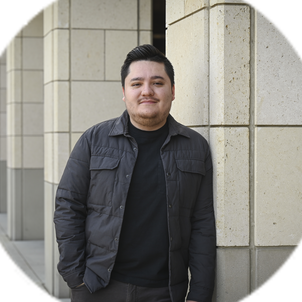In April of this year, the active volcano on St. Vincent and the Grenadines – my home – erupted. We have a water system that’s open to all elements. The ash contaminated the water, and in other places, rocks and downed trees blocked access so some parts of the community didn’t have fresh water for all of April. I would like to come back home and help make our water system more efficient and protected so if there’s a future disaster, we’ll be better prepared.
I’m coming to Stanford to get my second master’s – this one in civil engineering. My hope is to work with a water company here and get experience to do my own work in sustainability in the future. This career path wasn’t inevitable. In 2015, I was invited by the Caribbean Science Foundation to participate in the Student Program for Innovation in Science and Engineering. They introduced engineering to us as a field and brought in accomplished engineers to talk to us about what their lives were like. Some were from the Caribbean but were studying overseas. I thought, “This is something I could do too. This is really something interesting.”
I’m able to attend Stanford thanks to the Wade Scholarship program, which I learned about through an affiliate of the Caribbean Science Foundation; I’m really excited about being a Wade Scholar and feel fortunate to be chosen for this experience.
I was always a very curious child who loved math and science growing up. I was constantly asking questions – which adults in the Caribbean, where I’m from, generally don’t like children to do. But with science, I could ask as many as I wanted and it wasn’t a problem. I get to continue that here – plus expand my leadership skills.
As a kid, I tended to be shy and gravitate more toward the background. But when I was 16, my father became the pastor of our church; our Christian faith is very important to our family. I had to change my mindset and intentionally embrace more of a leadership role. I just reminded myself that I wasn’t really doing it for me but instead for the uplifting of our church and community.
All that leadership practice helped – I was nominated to be our class representative in undergrad and ended up doing that for three years. Today I balance all my church activity with my research requirements – and I am definitely more organized and purposeful. I’m excited to bring all that experience and leadership to my work at Stanford.
Related spotlights

Adrienne Propp

Lara Weed

